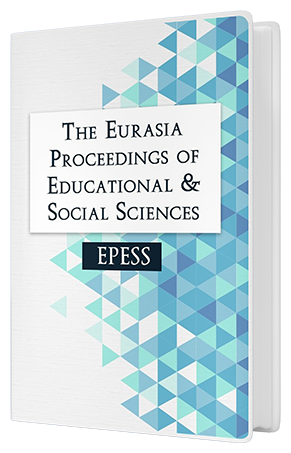Integrated Development and Assessment of Mathematical Modeling Practices for Culturally Responsive STEM Education: Lionfish Case Study
Keywords:
Mathematical modeling, Assessment, Culturally responsive stem education, Project based learning, Professional learning communities, Interdisciplinary mathematical and scientific practicesAbstract
Real-world problems often demand interdisciplinary solutions, and thus provide opportunities for cross-disciplinary instruction and learning within the mathematical sciences and STEM fields. Building on the vision of The Mathematical Sciences in 2025 (National Research Council, 2013) and with the motivation to prepare the students of the 21st century, interdisciplinary teacher teams are created to work together with students, university faculty, and community experts, towards building instruction around solving problems on locally relevant STEM challenges. The goal of this research program is to provide equitable access to quality STEM instruction for all students while using culturally responsive practices. Since 2014, with support from the National Science Foundation, in-service STEM teachers, students, and university faculty have been participating in year-long professional learning community (PLC) activities on STEM projects around culturally relevant topics such as lionfish population dynamics and control, water quality, and green home design. Based on the emerging local best practices with PLCs around interdisciplinary projects, these PLCs support the development of interdisciplinary knowledge and practices by students, teachers and the community for learning mathematical sciences and STEM, both in and out of school settings. Using the case of the lionfish project as an exemplar for culturally responsive STEM projects, we discuss how focused professional development sessions for teachers on the mathematical and scientific modeling of lionfish population dynamics and control using discrete, continuous and statistical methods furthered this development.Downloads
Published
Issue
Section
License
Copyright (c) 2018 The Eurasia Proceedings of Educational and Social Sciences

This work is licensed under a Creative Commons Attribution-NonCommercial-ShareAlike 4.0 International License.
The articles may be used for research, teaching, and private study purposes. Any substantial or systematic reproduction, redistribution, reselling, loan, sub-licensing, systematic supply, or distribution in any form to anyone is expressly forbidden. Authors alone are responsible for the contents of their articles. The journal owns the copyright of the articles. The publisher shall not be liable for any loss, actions, claims, proceedings, demand, or costs or damages whatsoever or howsoever caused arising directly or indirectly in connection with or arising out of the use of the research material. All authors are requested to disclose any actual or potential conflict of interest including any financial, personal or other relationships with other people or organizations regarding the submitted work.




